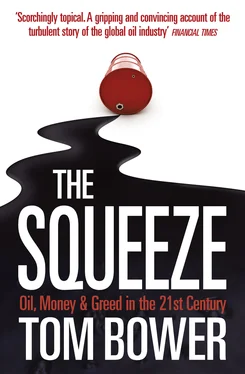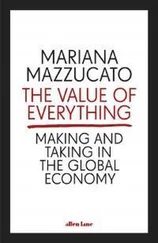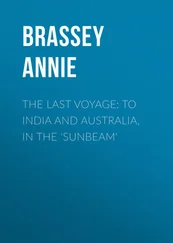Experience honed Hall’s pedigree. Unlike his younger rivals, he had started his career in BP’s supply department in the midst of the first oil crisis in 1973. Until then, BP and the other oil majors – Exxon, Mobil, Shell, Chevron, Gulf and Texaco, together known as the Seven Sisters – who controlled 85 per cent of the world’s oil reserves, had perfected a cosy arrangement to fix the world price. Their representatives met regularly to discuss their costs and calculate their required profits. Blessed by a near-monopoly and a surplus of oil, the seven chairmen would travel as statesmen to the Middle East and inform the Arab producers the price the cartel would pay for their oil the following year, usually around $25.25 per ton, or $3.60 a barrel. The chairmen acknowledged each other’s ‘turf’ and, acting like governments, used their intelligence agencies and military supremacy to impose one-sided agreements. The Arab producers meekly signed fixed-price contracts, Exxon formally announced the price, and the crude continued to flow from the Middle East to refineries in Europe and America, although the USA could rely on its own plentiful supplies, supplemented by additional oil from Venezuela and Mexico. Before 1939, Europe imported 90 per cent of its oil from America, but after 1945 it switched to Middle Eastern oil, which cost 20 cents a barrel to produce compared to 90 cents for oil from Texas. Even American oil companies increased their imports. To placate small US producers, who were protesting about competition from Arab oil, in 1956 President Eisenhower limited imports, thus increasing the glut in the Middle East. Four years later, without consultation, Exxon and the other Sisters unilaterally cut prices for oil producers. Resentful of the cartel, Saudi Arabia and four other leading Middle Eastern oil producers met in Baghdad in 1960 to form OPEC, to challenge the Seven Sisters’ ownership of their reserves.
The new, unfocused group confronting the Western cartel remained ineffectual until the Six-Day War in 1967. Resentment against America and Britain sparked the declaration by Saudi Arabia of an oil embargo, but this show of bravado descended into farce when the Seven Sisters efficiently organised increased supplies from Iran and Venezuela, and Saudi Arabia’s income plummeted. The fiasco emboldened Muammar Gaddafi after his coup in Libya in 1969. ‘My country has survived 5,000 years without oil,’ he told Peter Walters, BP’s managing director, during their first tense meeting in 1970, ‘and unless we get more money we will stop supplies.’ A huge spurt in demandhad prompted Exxon to forecast for the first time a world shortage of oil, and the fear of scarcity, plus America’s increase in imports to 28 per cent of its consumption, served the interests of OPEC. The Seven Sisters, OPEC knew, could only control prices so long as there was a surplus of oil. Armand Hammer, the chairman of Occidental, was the first to capitulate, reducing production and increasing his payments to Gaddafi in May 1970. Gaddafi’s success encouraged the Shah of Iran, and then the governments of Venezuela and Saudi Arabia, to demand price hikes. The oil companies feared losing their power to threaten the producers with a boycott if they rejected the prices they stipulated. Meeting in New York on 11 January 1971, 23 oil companies agreed, with the American government’s permission, to breach the anti-trust laws, and confront Libya and OPEC. Their unity was short-lived. During negotiations in Tehran and Tripoli in March 1971, the companies’ agreement disintegrated, and prices were increased beyond their limits. ‘We’ll never recover,’ Walters lamented. ‘There is no doubt that the buyer’s market for oil is over,’ admitted David Barran, Shell’s chairman. The Arabs, he noted, felt betrayed by the West. Sensing weakness, the Libyan and Iraqi governments began partial nationalisation of Western oil interests in 1972. The United States, said Gaddafi, deserved ‘a good hard slap on its cool and insolent face’. The Shah agreed. He nationalised 51 per cent of the oil majors’ Iranian interests and increased prices again. Peter Walters was meeting OPEC representatives in Vienna on 6 October 1973 when he heard that Egypt and Syria had invaded Israel during Yom Kippur, the most holy day in the Jewish calendar. The relationship between the OPEC producers and the Seven Sisters had changed unalterably. The public and the politicians blamed the oil companies for creating chaos and making excessive profits. In the vacuum of considered energy policies, Western governments were accused of perpetuating a ‘ fool’s paradise’ by relying on arrogant oil executives to supply civilisation’s lifeblood. Eric Drake, BP’s chairman, admitted to Andy Hall and other graduates recruited during that epic year that oil would probably rise from $2.90 to the unprecedented price of $10 a barrel. Prices actually rose to $12, provoking the Seven Sisters’ disintegration and the industry’s transformation. Oil was no longer a concession or a product for refining, but became a tradable commodity attractive to cowboys.
Until 1973, oil traders hardly existed except for a fringe group who, to the irritation of BP and Shell, shipped crude from Russia to Rotterdam to supply West Germany and Switzerland. After the Seven Sisters were disabled, BP and Shell no longer felt obliged to protect the Arabs’ monopoly. Whenever the corporations had a surplus of crude, they traded it for instant delivery in Rotterdam, one of the world’s largest oil-storage areas. Anro, a subsidiary of BP managed by Yorkshireman Chris Houseman, began speculating in oil and refined products based on ‘spot’ prices quoted in Rotterdam, and Shell established Petra, a rival trader in the port. Gradually the two companies replaced the fixed-price contracts agreed with OPEC with contracts based on prices quoted among traders on the day of delivery in Rotterdam. Oil became a traded commodity in an unregulated market, subject only to finance from banks and counter-party risk.
The treatment of oil as a commodity akin to sugar, rice, coal and particularly metal ores caught the attention of Marc Rich, a secretive trader employed by Philipp Brothers, the world’s largest supplier of raw materials, based in New York. Ambitious for wealth, Rich would achieve notoriety in 2000 when, in the last moments of the Clinton administration, the president granted him a pardon on charges of tax evasion. Rich’s journey had begun in the late 1960s. Accustomed to play both sides in order to control the market for any mineral buried in the earth, he and his partner Pincus (‘Pinky’) Green had realised that the Seven Sisters’ control of the oil surplus would eventually be challenged and replaced by the producers’ governments. Like the handful of rival traders in London, Rich understood both the complications and the simplicity of oil. After sophisticated technology had found a reservoir, basic project management would efficiently pipe the crude to a tanker for delivery to a refinery. To earn a real fortune from trading oil, Rich knew, required understanding of refining – heating crude oil to boiling point and separating the parts: naphtha for chemicals and the distillates to make petrol, jet fuel, heating oil, kerosene and diesel. Making a profit from the manufacture of those fuels depended on understanding the constraints of the 600 refineries in the world, each calibrated to process a particular crude from roughly 120 different types. If a refinery calibrated for Iranian crude was denied supplies, the adjustment to process the alternative heavy, ‘sour’ sulphur crude from Saudi Arabia or the lighter ‘sweet’ crude from Iraq was expensive and time-consuming. Profiting from oil, Rich knew, depended on anticipating the circumstances that could cause a disruption of the market or spotting a potential shortage, and securing alternative supplies.
Читать дальше











![John Bruce - The Lettsomian Lectures on Diseases and Disorders of the Heart and Arteries in Middle and Advanced Life [1900-1901]](/books/749387/john-bruce-the-lettsomian-lectures-on-diseases-and-disorders-of-the-heart-and-arteries-in-middle-and-advanced-life-1900-1901-thumb.webp)
